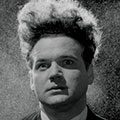If you had to teach someone to play guitar, would you just hand them a book on the history of guitar music and say “off you go”, without letting them ever actually touch an instrument?
It seems obvious and self-evident that if you’re attempting to teach someone a practical skill (such as media production) that you would teach them by doing, by actually using that practical skill, rather than by relying solely on theory and history. This is the main idea in this week’s reading, a pair of blog posts and a video by academic David Gauntlett.
Gauntlett argues that the traditional backwards-looking mode of studying media – characterised by study of institutions, productions, audiences, and texts – is, today, essentially useless and not at all reflective of the current media landscape. There are two “peaks” of activity that Gauntlett describes as coming along with the rise of DIY, lo-fi media production, one positive and one negative:
- Optimistic – people empowered through technology to make media, for marginalised voices to be heard, democratisation of media production and consumption, etc.
- Pessimistic – exploitation and capitalism, Big Data, government and private surveillance, etc.
But the part of Gauntlett’s posts that most resonated with me is that media studies is a field particularly suited to learning by doing. Theory and history are valuable, but what’s really going to get you somewhere is to just start making things. This ties into our readings from a previous week about the passion trap, and how important dedicated practise is, which I discuss more in the blog post Passion.
It also ties into the ideas of the filmmakers Quentin Tarantino and Paul Thomas Anderson, neither of whom ever went to a formal film school to learn their craft but who are now universally regarded as masters of their form. Though they each clearly had an encyclopaedic knowledge of the foundations of cinema to begin with (gained through years of watching thousands and thousands of films), in interviews they both say that what really helped get their careers as filmmakers off the ground was to simply start making films.
As the directors of two of the all-time greatest debut feature films in American cinema history (Reservoir Dogs and Hard Eight, respectively), and possessors of immense natural talent, they are surely exceptional examples of this theory and therefore may not necessarily be representative. I definitely wouldn’t assume that their success is easily replicable. But their success also proves that what makes someone a good maker is not necessarily theoretical knowledge.
